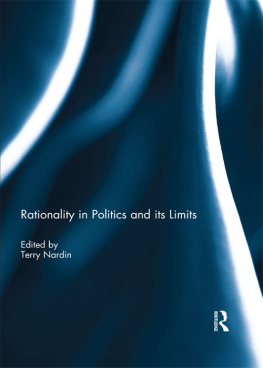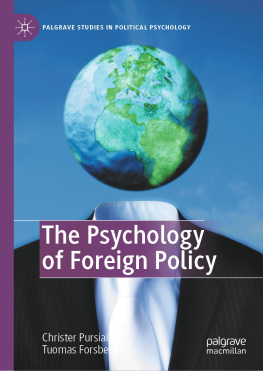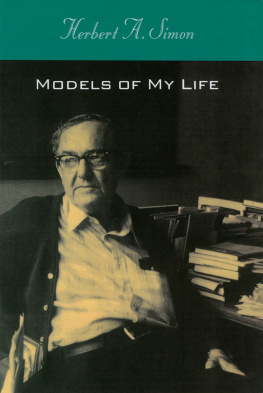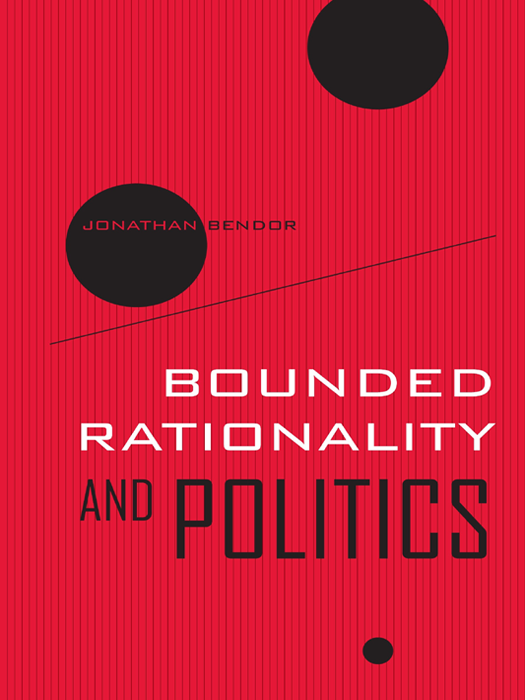THE AARON WILDAVSKY FORUM FOR PUBLIC POLICY
Edited by Lee Friedman
This series is to sustain the intellectual excitement that Aaron Wildavsky created for scholars of public policy everywhere. The ideas in each volume are initially presented and discussed at a public lecture and forum held at the University of California.
AARON WILDAVSKY , 1930-1993
Your prolific pen has brought real politics to the study of budgeting, to the analysis of myriad public policies, and to the discovery of the values underlying the political cultures by which peoples live. You have improved every institution with which you have been associated, notably Berkeleys Graduate School of Public Policy, which as Founding Dean you quickened with your restless innovative energy. Advocate of freedom, mentor to policy analysts everywhere.
(Yale University, May 1993, from text granting the honorary degree of Doctor of Social Science)
Missing Persons: A Critique of Personhood in the Social Sciences, by Mary Douglas and Steven Ney
The Bridge over the Racial Divide: Rising Inequality and Coalition Politics, by William Julius Wilson
The New Public Management: Improving Research and Policy Dialogue, by Michael Barzelay
Falling Behind: How Rising Inequality Harms the Middle Class, by Robert H. Frank
Godly Republic: A Centrist Civic Blueprint for Americas Faith-Based Future, by John J. DiIulio, Jr.
Bounded Rationality and Politics, by Jonathan Bendor
Bounded Rationality
and Politics
Jonathan Bendor

UNIVERSITY OF CALIFORNIA PRESS
BerkeleyLos AngelesLondon
University of California Press, one of the most distinguished
university presses in the United States, enriches lives around
the world by advancing scholarship in the humanities, social
sciences, and natural sciences. Its activities are supported
by the UC Press Foundation and by philanthropic
contributions from individuals and institutions. For more
information, visit www.ucpress.edu.
University of California Press
Berkeley and Los Angeles, California
University of California Press, Ltd.
London, England
2010 by The Regents of the University of California
Library of Congress Cataloging-in-Publication Data
Bounded rationality and politics / by Jonathan Bendor [et al.].
p. cm.(The Aaron Wildavsky forum for public policy; 6)
Includes bibliographical references and index.
ISBN 978-0-520-25946-1 (cloth: alk. paper)
ISBN 978-0-520-25947-8 (pbk.: alk. paper)
1. Decision makingPolitical aspects. 2. Simon, Herbert A. (Herbert Alexander), 19162001. 3. Organizational behaviorPolitical aspects. 4. Social sciencesPhilosophy. I. Bendor, Jonathan B.
BF441.B645 2010
320.019dc22
2009052478
Manufactured in the United States of America
19 18 17 16 15 14 13 12 11 10
10 9 8 7 6 5 4 3 2 1
This book is printed on Cascades Enviro 100, a 100% postconsumer waste, recycled, deinked fiber. FSC recycled certified and processed chlorine free. It is acid free, Ecologo certified, and manufactured by BioGas energy.
For Linda,
whos understood what its meant
Contents
1. Introduction
Jonathan Bendor
2. Herbert A. Simson: Political Scientist
Jonathan Bendor
3. Satisficing: A Pretty Good Heuristic
Jonathan Bendor, Sunil Kumar, and David A. Siegel
4. A Model of Muddling Through
Jonathan Bendor
5. The Perfect Is the Enemy of the Best: Adaptive versus Optimal Organizational Reliability
Jonathan Bendor and Sunil Kumar
6. Garbage Can Theory
Jonathan Bendor, Terry Moe, and Ken Shotts
7. Institutions and Individuals
Jonathan Bendor
Figures
Preface
I have been studying the relation between bounded rationality and politics off and on for almost thirty years. (I work slowly.) The essays in this book, however, are all from the last dozen or so years. All of the chapters share a simple premise: cognitive constraints often affect judgment and choice in powerful ways. Hence, models of full (unbounded) rationality are ignoring causally important variables. How much they are missing depends on the difficulty of the problems tackled by decision makers. The harder their problems, the more cognitive constraints bind (Simon 1996) and the greater their causal impact.
But for several reasons this book is not another critique of rational choice (RC) theories. First, I am more interested in providing alternatives to classical models of decision making than in critiquing them. Of course the two activities are intertwined, but the latter badly needs the former: you cant beat something with nothing. As Shepsle has cautioned us, The First Law of Wing Walking [is] dont let go of something unless you have something else to hang onto (1996, p. 217). This advice is based on a sound appreciation of the sociology of science, and a good case can be made for it as a normative decision rule as well.
Second, I think that most critics of RC theories (e.g., Green and Shapiro 1994) have seriously underestimated the contributions that many of these theories have made to political science. They have given us insights into overlooked problems such as those of collective action; they have given us bold predictions such as the median voter theorem. Critics point out that RCs bold predictions often fall short empirically. But the point is not to be always correct. Thats impossible; striving for perfection produces flabby theories that cant be falsified. The point, per Popper (1963), is to discover and correct ones errors as rapidly as possible. Theres no shame in being wrong. Much better to be strong and wrong (Schotter 2006), to have produced a beautiful theory [murdered] by a gang of brutal facts (La Rochefoucauld [1678]) than one that makes no interesting claims at all.
RC theorizing has also given our discipline a badly needed measure of intellectual coherence. This is important not only for research; it aids teaching as well. For example, I think that a wise pedagogical strategy for doctoral students is to study RC theories first. Only after they have a good grasp of this research program should they plunge into the less well-structured bounded rationality program. People who teach introductory game theory always begin with models of complete information, which are much easier to understand than those with incomplete information. In the context of this book, the point is reflexive: if we take seriously cognitive constraintsincluding our own and our studentsthen its easy to see why the models of complete rationality are intellectually important benchmarks and starting places.
For all these reasons, these essays should be taken as providing friendly competition to RC modelsbut competition nonetheless. My decision to collect these essays into a book was prompted by a request from the University of California, Berkeleys Graduate School of Public Policy to give the 2004 lecture honoring the memory of Aaron Wildavsky. (The GSPP typically asks the lecturer to provide a book manuscript as well as the lecture.) Because Aaron was one of my advisors and had a major impact on my thinking, I was happy to give the lecture. The book, however, was another matter. I hadnt written a book in twenty years and had been focusing instead on articles. Then Nelson Polsby stepped in and gave me good advice (as he so often did throughout my career): use the Wildavsky lecture as Done!






